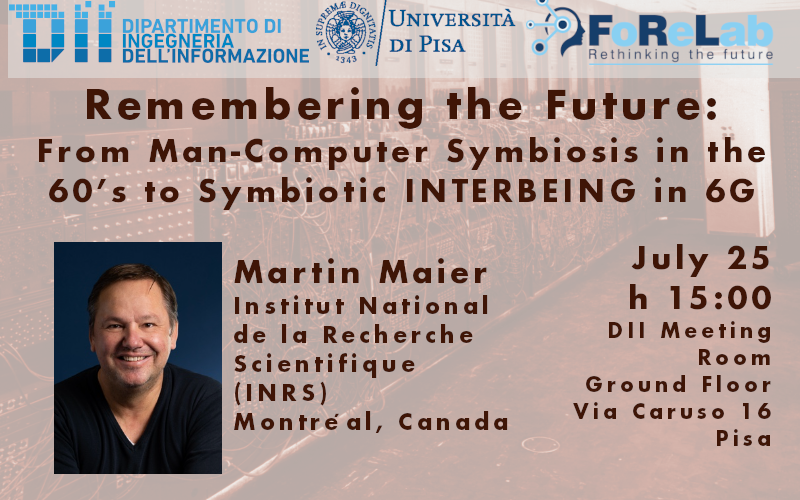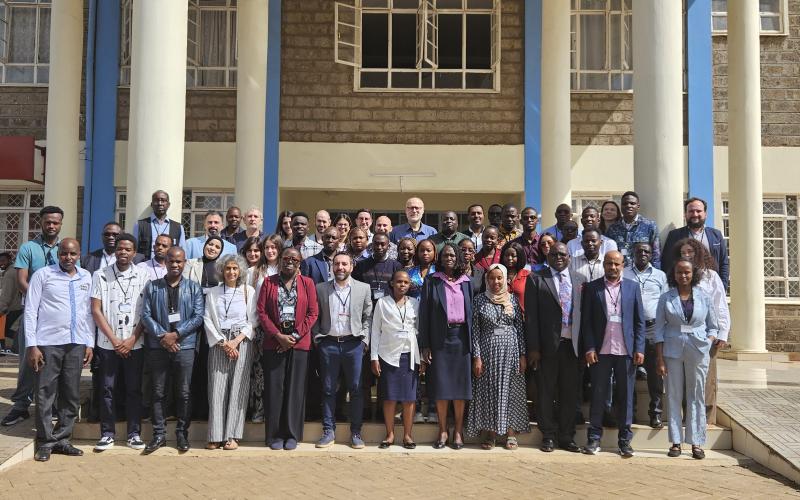In questi giorni il team di bioingegneri composto da Arti Ahluwalia, Carmelo De Maria e Chiara Belmonte si trova a Nairobi per tenere un corso intensivo nell'ambito del progetto Afra Moya, di cui il...
Leggi tuttoRemembering the Future: From Man-Computer Symbiosis in the 60’s to Symbiotic INTERBEING in 6G

h 15.00
Aula Riunioni Piano Terra
Dipartimento di Ingegneria dell'Informazione Università di Pisa
Via Caruso 16 Pisa
Abstract
Increasingly, conversations about AI take on the tone and themes of Elon Musk-like predictions about a future in which intelligent robots replace humans first as workers, and then as a species. What is less known is that this Turing-derived vision of AI is not an inevitable future, but one option of two competing visions of AI. For our species’ sake, we ought to remember the future envisioned by two AI pioneers in the 60’s and before. While
Turing’s vision of an anthropomorphic (human-equivalent) automative AI puts an emphasis on automation and imitation of existing human behavior, Licklider’s alternative vision of AI puts an emphasis on augmentation and discovery of new human behavior, aiming at a hybrid (human-machine) creative AI that collaborates in symbiosis with humans to usher in a post- human future of cyborg (cybernetic organism) intelligence instead of Turing’s android (machine) superintelligence. In this seminar, we first review our work on the so-called human-in-the-loop Tactile Internet, which adds a new dimension to human-to- machine interaction by enabling tactile and haptic sensations, for a race with (rather than against) machines. Further, we explore the symbiosis of blockchain technologies, most notably the decentralized autonomous organization (DAO), with other key technologies such as AI and robots, putting our focus on the Tactile Internet for advanced human-to-machine interaction via crowdsourcing of human expertise and enhancing the human capabilities of unskilled crowd members. Finally, we present our concept of INTERBEING based on the symbiosis between INTERnet and human BEING, which leverages on hyperintelligent life-like cybernetic organisms to lay the foundation for the intelligentization of future 6G networks by benefiting from not only recently emerging generative AI (high-tech) but also nature’s more- than-human intelligence derived from its sacred way of knowing shaped by eons of evolution (no-tech).
Bio
Martin Maier is a full professor with the Institut National de la Recherche Scientifique (INRS), Montréal, Canada. He was educated at the Technical University of Berlin, Germany, and received MSc and PhD degrees both with distinctions (summa cum laude) in 1998 and 2003, respectively. In 2003, he was a postdoc fellow at the Massachusetts Institute of Technology (MIT), Cambridge, MA. He was a visiting professor at Stanford University, Stanford, CA, 2006 through 2007. He was a co-recipient of the 2009 IEEE Communications Society Best Tutorial Paper Award. Further, he was a Marie Curie IIF Fellow of the European Commission from 2014 through 2015. In 2017, he received the Friedrich Wilhelm Bessel



